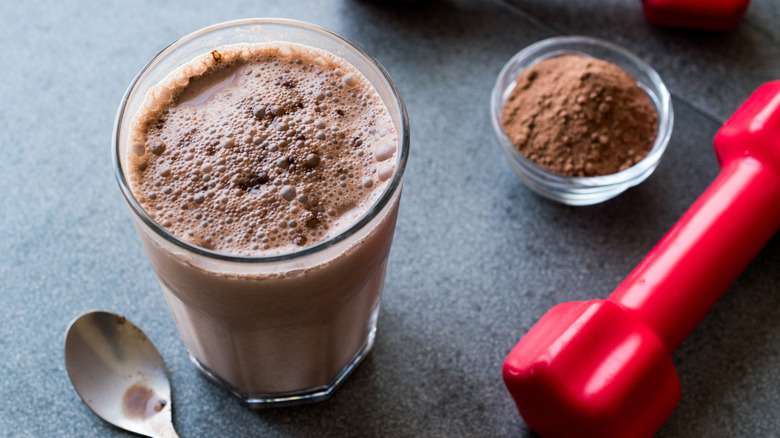Can You Drink Too Much Protein Powder?
Protein supplements are popular among athletes and dieters alike. Some folks drink protein shakes first thing in the morning, before and after exercise, or whenever they feel like it, but how much protein is too much? For starters, you should know that your body can use this nutrient for fuel, according to the American Council on Exercise (ACE). Amino acids, the building blocks of protein, support muscle growth and repair, making it easier to recover from exercise. Moreover, high-protein foods increase satiety and ward off hunger, which may help with weight management.
The ACE recommends 0.8-1.7 grams of protein per kilogram of body weight per day, depending on how active you are. The average person needs about 0.8-1 gram of protein per kilogram, but powerlifters and bodybuilders can go up to 1.7 grams per kilogram of body weight. As a general rule, this nutrient should account for 15-30% of your energy intake. Each gram of protein supplies 4 calories, according to the ACE. This means you need anywhere between 75-150 grams of protein per day for every 2,000 calories consumed.
While it's perfectly fine to drink protein shakes on most days, you should still use common sense. Protein powder is not meant to replace real food — its role is to supplement your diet and bring you closer to your fitness goals.
How much protein powder is too much?
Protein powder is convenient and widely available, but this doesn't mean you should overindulge. As discussed earlier, protein delivers 4 calories per gram. If you go overboard, the calories will add up. On top of that, many brands contain added sugars, heavy metals, and chemicals. The ACE's guidelines apply to both dietary and supplemental protein as well, so if you normally get 15-30% of your calories from high-protein foods, you probably don't need protein shakes.
The National Academy of Sports Medicine (NASM) states that higher protein intakes are not necessarily better for sports performance. First of all, excess protein may not be fully absorbed into your system. The human body can only absorb and use a certain amount of protein in one sitting — that's about 20 grams for women and 25-30 grams for men. Second, the nutrient is more or less effective for muscle growth and repair based on the timing of protein ingestion, among other factors.
For best results, determine your protein requirements, and then spread your intake over the day. Try to eat a high-protein meal or drink protein shakes every 3-4 hours — especially before and after training, according to NASM. Opt for whey concentrate or other sources of fast-digesting protein around your workouts, along with a source of slow-digesting protein (e.g.: casein) at bedtime. Alternatively, you may use a blend of fast- and slow-digesting proteins for the sake of convenience.

